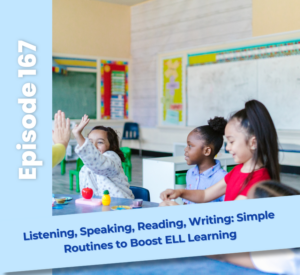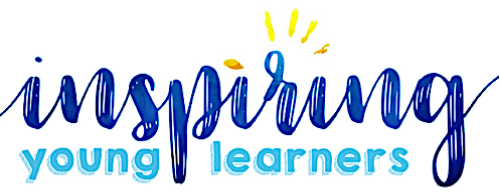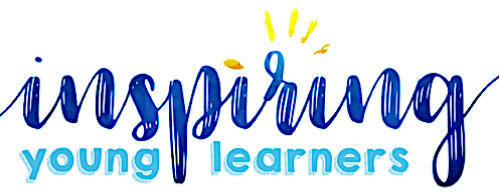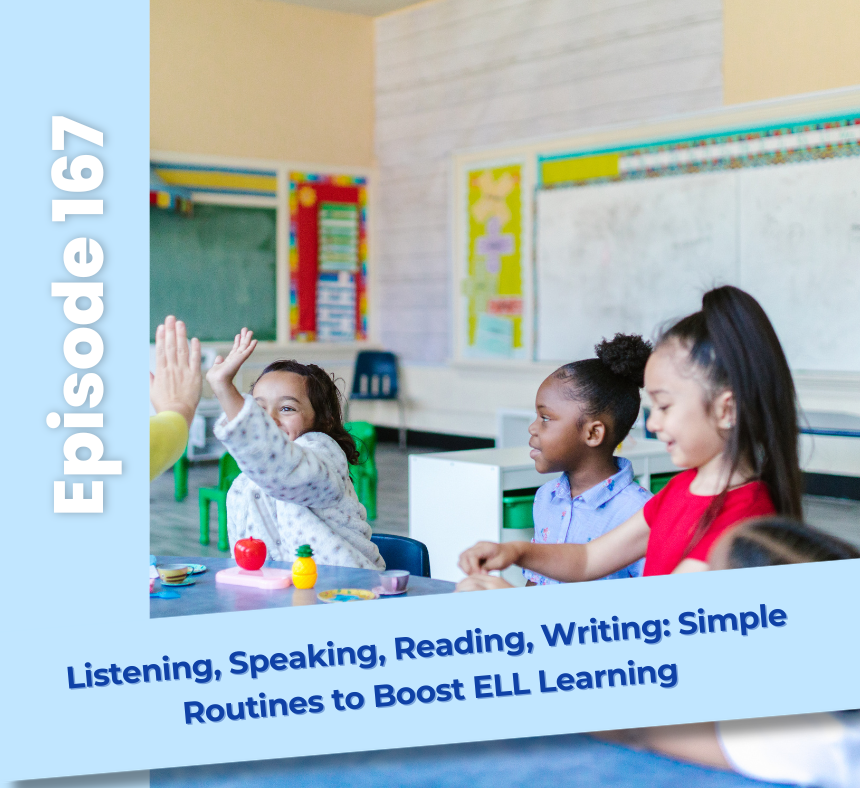
The end of the school year often feels like a race to the finish line, especially for teachers of English Language Learners (ELLs). The exhaustion is real, but the final months of the year can also be some of the most impactful for language growth. In this episode of the Equipping ELLs Podcast, Beth Vaucher introduces a new series designed to help teachers work smarter, not harder, while giving their students the language boost they need to succeed.
Listen in to the episode here!
Why Language Domains Matter
Language acquisition isn’t about memorizing vocabulary lists or acing multiple-choice questions. It’s about building the skills necessary to communicate, both in and out of the classroom. This development rests on four essential language domains:
- Listening: The foundation for understanding and responding to spoken language.
- Speaking: The ability to express thoughts, ideas, and information verbally.
- Reading: The skill of comprehending and interpreting written text.
- Writing: The ability to communicate effectively through written words.
These domains are interconnected. If students struggle with listening, they’ll likely face difficulties in speaking. If their vocabulary is weak, reading comprehension becomes a challenge. Understanding these connections helps teachers address the root causes of language difficulties, rather than just the surface symptoms.
Identifying Language Needs in Your ELLs
To make the most of the upcoming months, start by identifying which domain each student needs the most support in. Beth suggests:
- Listening to Students: Notice if they struggle to follow directions or contribute to class discussions.
- Conducting Informal Assessments: Ask students to summarize stories, engage in partner conversations, or write short responses.
- Reviewing Their Work: Look for patterns in writing samples, participation, and oral language activities.
By observing these behaviors, teachers can tailor their instruction to meet students’ specific needs, without relying on outdated test scores or generic strategies.
Routines That Make Language Learning Manageable
Routines provide structure and consistency, two essential elements for successful language instruction. Beth previews the upcoming episodes, where she’ll share simple, research-backed routines for each domain. These routines won’t add to your workload; instead, they’ll help you integrate language practice into your existing lessons more effectively.
- Listening Routines: Activities like repeated listening and interactive storytelling.
- Speaking Routines: Structured conversations and sentence-starter exercises.
- Reading Routines: Vocabulary previews and guided reading sessions.
- Writing Routines: Step-by-step writing prompts and collaborative tasks.
These strategies make it easier for teachers to provide differentiated support while helping ELLs build confidence in their language abilities.
Looking Ahead
In the next episode, Beth will dive deeper into the listening domain. She’ll explain why strong listening skills are fundamental to language development and share practical routines teachers can use immediately.
Connect with Beth:
More about Equipping ELLs:
We all know that teaching isn’t easy, but it doesn’t have to be this hard. Equipping ELLs is a podcast for both ESL specialists and homeroom teachers who are looking for effective and engaging ways to support their English Language Learners without adding to their endless to-do list. Tune in each week to hear tips, strategies, and inspirational stories that will empower you to better reach your ELL students, equip them with life-long skills, and strengthen relationships with colleagues and parents.
Your host, Beth Vaucher, is the founder of Inspiring Young Learners. She is an ESL certified homeroom teacher with over 10 years of experience teaching in the US and internationally. Her background of M.Ed in ESL and Curriculum and Instruction combined with her experience has led her to develop a bestselling newcomer curriculum that has sold in over 90 countries around the globe. She brings a different perspective to teaching ELLs from her years teaching and living abroad and working with ELLs from around the world. You will walk away from each episode with the ideas and tools you need to transform your experience as a teacher and cultivate a thriving and welcoming environment for your ELL students
The end of the school year often feels like a race to the finish line—especially for teachers of English Language Learners (ELLs). The exhaustion is real, but the final months of the year can also be some of the most impactful for language growth. In this episode of the Equipping ELLs Podcast, Beth Vaucher introduces a new series designed to help teachers work smarter, not harder, while giving their students the language boost they need to succeed.



